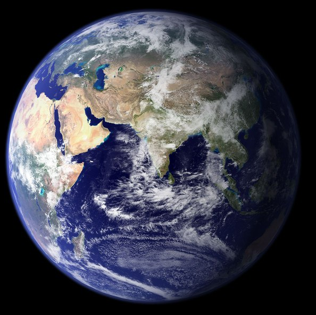![]() Software Solutions presents:
Software Solutions presents: ![]()
The Internet as a Basic Human Right
December 12th, 2014.
“Big Data is at the foundation of all the mega-trends that are happening today”

click here: Predictive Marketing Engine
Using a machine-learning algorithm to score clients, this software can match content & products to each person automatically.
Hello everyone, today I have a bit of an advocoacy rant to make:
In a capitalistic global world, it seems not everyone is created equally! What do we mean by this? If you happen to be born in the wrong place, you actually are “missing the boat” of the future. In developed nations, we take web access for granted, but for many regions that’s not the case at all.
In western nations, Governments are becoming more controling and big corporations are infringing on our privacy. All that you have ever done on the web is easily tracked and leaves a footprint for agencies, government or corporate, to profile you.
There are algorithms that are monitoring you, and tracking keywords you use for signs of traits or affiliations that will put you on a watchlist, and a blacklist potentially. Your spending habits online are particularily vulnerable to scrutiny. There is perhaps nothing innately wrong with this, if the world was reciprocally transparent and we could come to accept that this is all inevitable. However, it’s how this can be used against you and how we the people can be exploited by this, that’s dangerous. We think that values like freedom, equality and fraternity are more collectively relevant than ever.
But the fact still exists, in the information age, free web access hasn’t even been legally considered a “basic human right”. Here I am blogging, while others are illitererate and can’t enjoy the sense of global community I feel right now in this moment. Is the internet becoming more like a police-state? The pendulum definately seems to be moving in the more conservative direction.
According to the world wide web foundation:
- The World Wide Web is becoming less free and more unequal
- Almost 60% of the world’s people — 4.3 billion – cannot get online, while over half of those who can access the Web live in countries that severely restrict their rights online
- 84% of countries are adjudged to have weak or non-existent laws to protect citizens from indiscriminate mass surveillance, up from 63% in 2013
What needs to be done: The Web and Rising Global Inequality
- Accelerate progress towards universal access by increasing access to affordable Internet and ensuring that everyone can use the Web all of the time, safely, freely and privately.
- Level the playing field by preventing price discrimination in Internet traffic, and treating the Internet like any other public utility.
- Invest in high-quality public education for all to ensure that technological progress doesn’t leave some groups behind.
- Promote participation in democracy and protect freedom of opinion by reversing the erosion of press freedom and civil liberties, using the Web to increase government transparency, and protecting the freedoms of speech, association, and privacy.
- Create opportunities for women and poor and marginalised groups by investing more in ICTs to overcome key barriers in health, education, agriculture and gender equity.
So who are the most progressive nations? Not surprisingly, it’s the usual candidates who lead the way.
Overview of Rankings by Nations
Recognise the Internet as a human right
Net Neutrality - Wiki
U.N. human rights council passes freedom of Internet resolution
While companies like Facebook look to profit by getting more of the world online, the fear of monopolies on our new global sandbox is very real. With monopolies like Google in search and Facebook for social networking and profiling of our identities, free-market competition is reduced and corruption can easily occur. Moreover as the gap between the top 1% in wealth and the rest of society increases, the internet is likely to become less “free” and more distorted in the image of however the “kings of the castle” in our global sandbox wish it to become. Is the internet Democratic? Are we on the verge of a totalitarian regime where the internet is used by vested corporate and political interests? Read up on internet access in China to see the reality.
Interent Users by Language:
